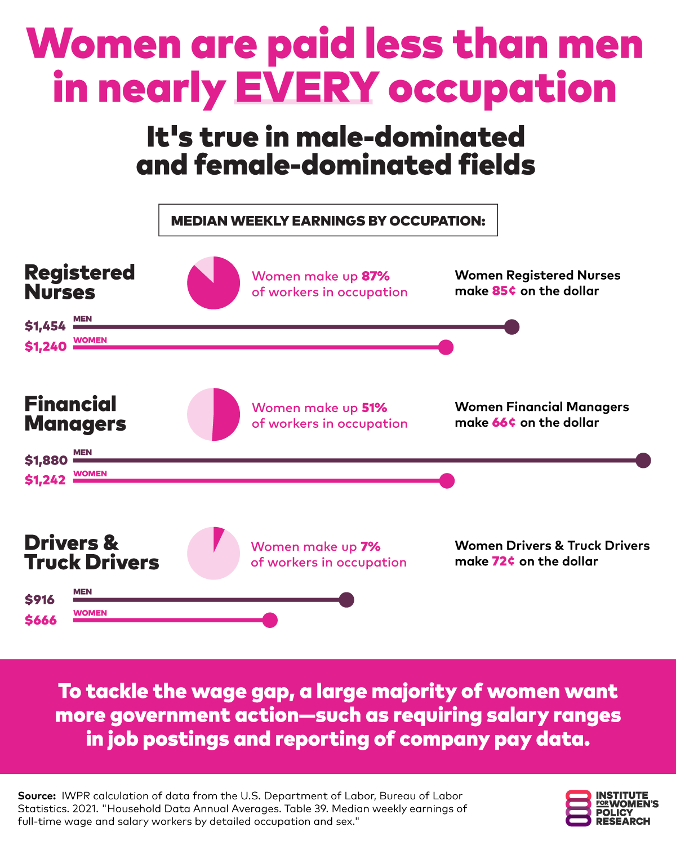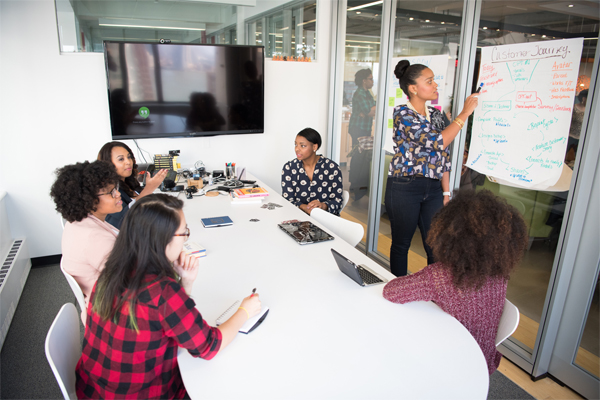To highlight Equal Pay Day on Wednesday 24th March 2021, the Institute for Women’s Policy Research (IWPR) has revealed that women in the US continue to be paid less in almost every occupation than men.
Its latest analysis of the Gender Wage Gap by Occupation, Race and Ethnicity for 2020 also reveals that 70% of women want the Government to do more to close the gender wage gap. IWPR’s analysis of 2020’s weekly earning data finds that of the 120 occupations (with enough data for calculating the gender wage gap), only five had higher earnings for women than men; and those earnings differences were marginal.
In the lowest paid of the largest 20 occupations for women (for example, maids and housekeepers earning around $503 per week), women account for nine in 10 workers; and face a wage gap of 10.6%. However, in the highest paid of the top 20 occupations for men (ie chief executives earning on average $2,402 per week), women account for fewer than one in three workers; with a huge wage gap of 24.4%.

WIDENING GAP FOR LATINA & BLACK WOMEN
More concerning is that the wage gap widens further for Black and Latina women. “Women’s median weekly earnings in six of the largest 20 occupations for women leave a family of three near poverty,” stated IWPR’s Senior Research Fellow Ariane Hegewisch.
“Latinas in service occupations – including many essential occupations during Covid-19 earn only 67 cents on the dollar made by White men in these jobs; and Black women just 69 cents. Even in these very low paid jobs there is a substantial wage gap.”

WAGE GAP IS ‘FIXABLE’
In fact, 70% of women believe the US Government needs to do more to tackle the wage gap, confirmed IWPR findings. Three out of four women think the government should require all companies with 100 or more employees to report gender and pay information. And a further 80% of women want the Government to require companies to include a wage or salary range in job postings. Additionally, two out of three women want the Government to prohibit employers from asking job applicants about previous pay rates.
“Black women and Latinas deserve more opportunities to move into work that pays higher wages,” stated IWPR’s President and CEO C Nicole Mason. Mason noted that there are upcoming opportunities for the Government to deliver solutions to scale to raise wages and diminish the wage gap; including raising the minimum wage and including training programmes, set-asides and strong oversight on gender diversity in the infrastructure package. “There is no good reason for gender differences in earnings,” Mason added. “The wage gap is a fixable problem”.







































